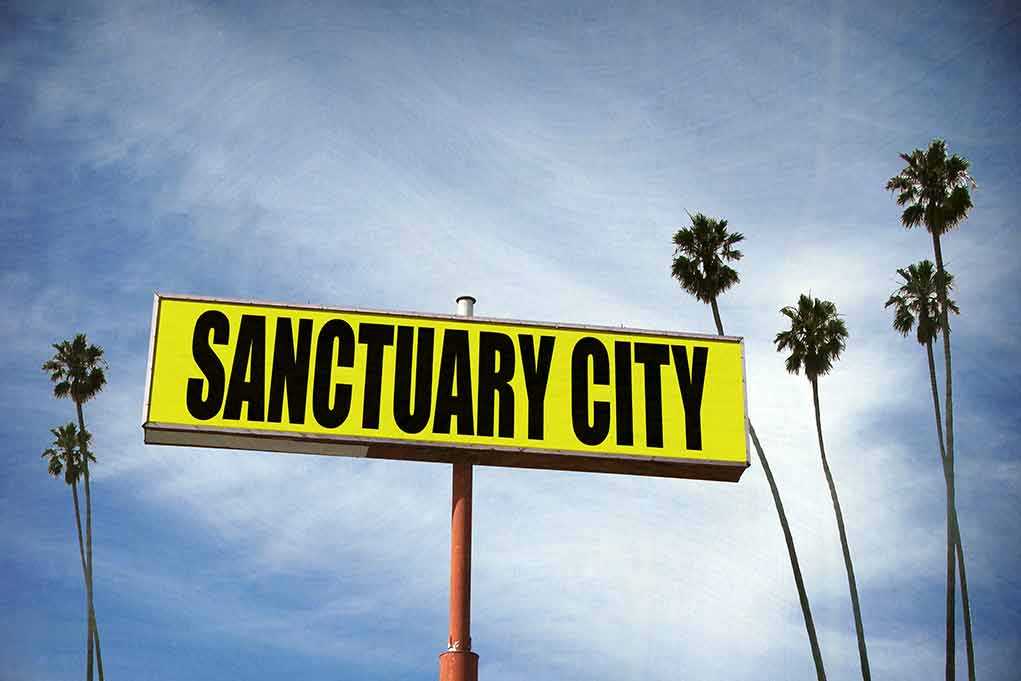
Florida’s Attorney General threatens to remove Key West officials from office after they terminated a crucial ICE agreement, setting the stage for a dramatic showdown between state authority and local governance.
Key Takeaways
- Florida Attorney General James Uthmeier has declared Key West a “sanctuary city” after commissioners voted to end their 287(g) partnership with ICE, which is illegal under state law.
- Uthmeier has threatened city officials with severe consequences including civil penalties, criminal charges, and potential removal from office if they don’t reinstate the agreement.
- Key West officials claim the agreement was never properly approved, while Commissioner Samuel Kaufman defended the decision by citing the importance of asylum seekers in their community.
- Similar standoffs in Florida have occurred before, with Fort Myers initially rejecting but later accepting ICE cooperation after pressure from state officials.
- The situation highlights the intensifying conflict between Florida’s strict immigration enforcement policies and local jurisdictions seeking autonomy on immigration matters.
Florida AG Declares Key West a “Sanctuary City” Following ICE Agreement Termination
In a forceful response to Key West’s recent decision to terminate its 287(g) agreement with Immigration and Customs Enforcement (ICE), Florida Attorney General James Uthmeier has issued a stark ultimatum to city officials. The agreement, part of a federal program allowing local law enforcement to perform certain immigration duties, was voided by city commissioners in direct violation of Florida law that explicitly prohibits any jurisdiction from establishing sanctuary policies for illegal immigrants. Uthmeier’s letter leaves no ambiguity about the state’s position: by canceling this cooperation with federal immigration authorities, Key West has effectively declared itself a sanctuary city.
“Florida Attorney General James Uthmeier (R) is putting the city of Key West on notice after commissioners recently voted to end their partnership with U.S. Immigration and Customs Enforcement, through the 287(g) program, despite legal requirements in place under state law,” Uthmeier stated in his formal notice to the city.
Severe Consequences Threatened for Non-Compliance
The Attorney General’s warning comes with teeth. Uthmeier has explicitly threatened city officials with significant repercussions if they fail to reverse course, including civil penalties, criminal charges, and most dramatically, potential removal from office. “Failure to take corrective action will result in enforcement of all applicable civil and criminal penalties, including removal from office,” warned Uthmeier in his communication to Key West leadership. This escalation marks one of the most aggressive stances taken by Florida officials in enforcing the state’s anti-sanctuary city laws that were signed by Governor Ron DeSantis in 2019.
“The City of Key West violated state law when they voted to void the Key West Police Department’s 287(g) agreement with ICE. We will not allow this unlawful sanctuary policy in Florida. They have a choice: stop impeding law enforcement from enforcing immigration law or face the consequences,” stated James Uthmeier, Florida Attorney General.
Uthmeier’s concerns are not merely procedural. He specifically highlighted recent arrests in the Florida Keys involving illegal aliens with serious criminal backgrounds, emphasizing the security risks posed by non-cooperation with federal immigration authorities. The warning comes at a time when border security remains a top priority for the Trump administration and Republican-led states who have taken increasingly strong measures to address illegal immigration when federal enforcement has been insufficient.
Key West Officials Defend Their Position
Key West officials have defended their decision on multiple grounds. City Attorney Kendall Harden claimed the agreement was void due to lack of formal approval through proper channels. Meanwhile, Commissioner Samuel Kaufman articulated the city’s humanitarian concerns, suggesting that the policy unfairly targets vulnerable populations who contribute to the local community. The commissioners’ vote reflects the significant ideological divide between state-mandated immigration enforcement policies and the priorities of the local government in Key West.
“People who are seeking political asylum are important members of our community. We have thousands of them here, by the way. And they deserve the respect that anybody else does,” stated Commissioner Samuel Kaufman in defense of the city’s position.
This is not the first such confrontation in Florida. A similar standoff occurred in Fort Myers, where the city council initially refused to approve participation in the 287(g) program but ultimately relented after receiving similar warnings from state officials. That precedent suggests Key West may face an uphill battle in maintaining its position against the combined pressure from the Attorney General’s office and Governor DeSantis’s administration, both of whom have consistently prioritized immigration enforcement and elimination of sanctuary policies throughout the state.
A Test Case for State vs. Local Authority
The Key West situation represents a critical test case in the broader national debate over immigration enforcement authority. Florida’s 2019 law banning sanctuary jurisdictions was among the strictest in the nation, mandating cooperation with federal immigration authorities and establishing severe penalties for non-compliance. The law specifically requires all Florida government entities to use their “best efforts to support the enforcement of federal immigration law,” leaving little room for local discretion. As this standoff develops, it will likely set important precedents for how similar conflicts are resolved throughout Florida and potentially in other states with comparable laws.
“The police Department’s existing 287(g) agreement void, Key West made itself a sanctuary city,” wrote James Uthmeier in his official communication to Key West officials, clearly establishing the state’s legal position.
With the Attorney General’s office threatening the most severe consequences available under law, Key West officials now face a critical decision: reverse their position and reinstate cooperation with ICE, or stand firm and potentially face removal from their elected positions. Whatever the outcome, this confrontation demonstrates the increasingly contentious nature of immigration policy enforcement in America and the willingness of state officials to use every tool at their disposal to ensure compliance with policies designed to combat illegal immigration.











